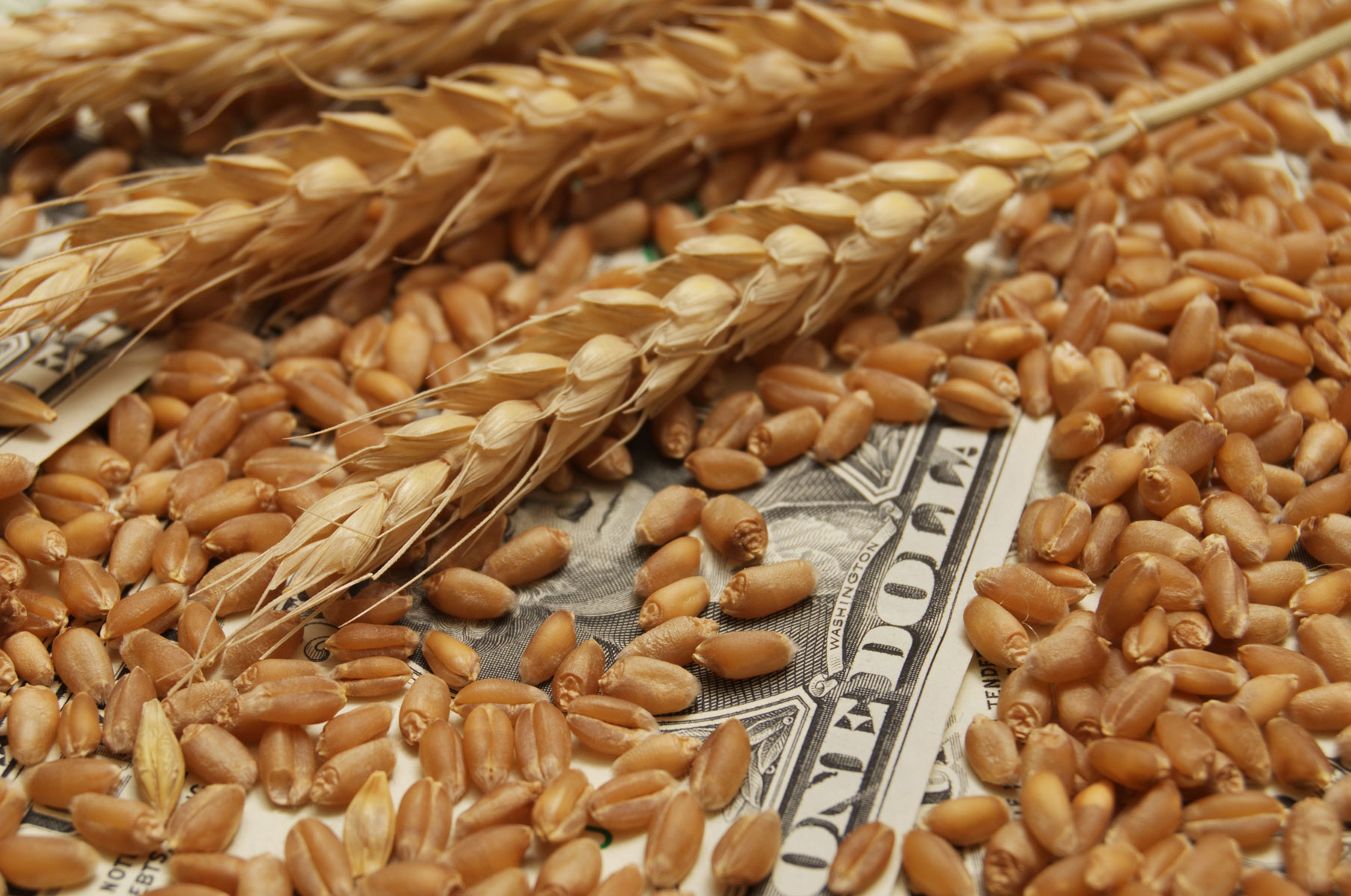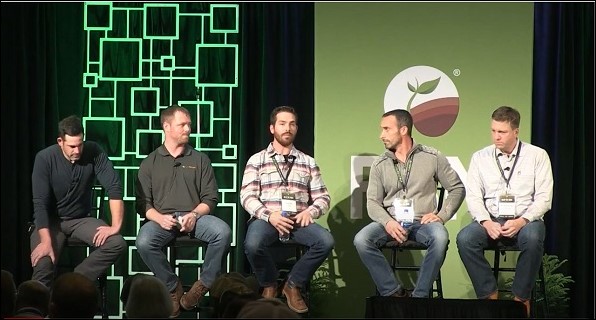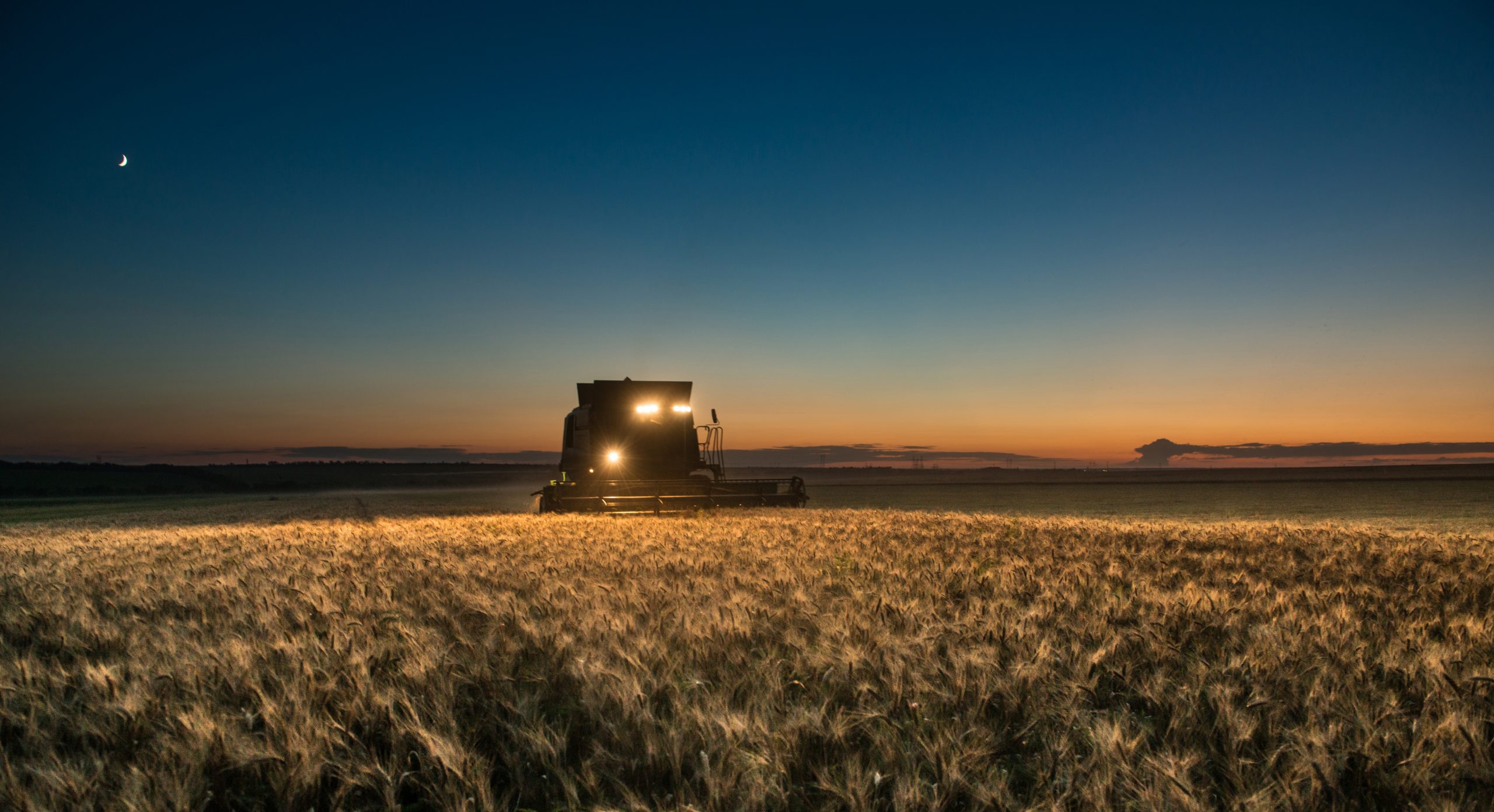- Published On: August 25, 2020
- Author: AgriSecure
Profits. They’re one of the primary reasons farmers decide to move into organic production. Financing the transition to organics, though, can be one of your biggest hurdles. That’s why the support of a banker or ag lender can be a lifeline for farmers looking to get into organics. The right backing helps you build an operation that can be passed on for generations to come.
In some cases, farmers already have fields that can be transitioned to organics in less time. That’s ideal, and it eases the financial worries.
But if that’s not the case, you face a 36-month period. During this time of transition, crops will have to be sold at the lower conventional crop prices. Commodity prices have been remarkably low in recent years, too. That’s made it tough to build up the cash reserves needed to get through the transition period.
So, good news! There are a number of lenders out there who fully recognize the financial potential of organics. At the same time, they understand the specific challenges associated with the transition process.
“We like to see all areas of agriculture be successful and we support producers that can find value-added ways to make themselves more successful,” says Howie Heckenlively, Senior Relationship Manager at Rabo AgriFinance.
“Organics is one path that can get you there to add value to a crop. We’re all in the commodity business, and organic beans and corn are still a commodity. But they’re a commodity on the rise. I think there’s more demand there than the supply we currently have.”
We asked Howie what lenders typically look for when talking to farmers who want to transition to organics. He outlined five important ways you can ensure your banker or ag lender has confidence in your vision for an organic farming operation.
1. Do your homework and have a plan.
When Howie meets with a grower, he needs to know they understand what they’re getting into. They need to demonstrate a real awareness of what it’s going to take to succeed.
“The biggest thing is being on the same page as your lender and having a plan that everyone agrees to in advance,” he says. “This is what I’m going to raise over the next 3 years, this is how I’m going to minimize my losses, how I’m going to get from point A to point B most effectively.”
The details of that plan don’t have to be set in stone. And your lender can help you determine what may work best financially. Howie is the most impressed by farmers who have a plan for financing the transition to organics. They arrive with potential crop rotations. They understand the affect on their cash flow and have calculated projected income streams over a 3-year period for their farm.
“We work with our customers to help with that, but we don’t want to be the ones who initiate the process,” he says. “We want to see them put it down on paper first, come with the idea, and we can look at it together, fine-tune it and help give them some advice.”
2. Have some equity in your operation.
Lenders next consider the potential economic impact of the three-year transition period. Will you be able to manage through it?
“I think the biggest hurdle, coming from a bank’s point of view, is making sure someone has the wherewithal to shoulder the financial burden of going through that process,” Howie says. “Generally speaking, it’s going to take someone who owns some ground and has some equity in their operation so they can leverage on the backend to help capitalize on the losses.”
3. Be okay with starting small.
Organics is not the right fit for every farm. So Howie is most comfortable with growers who view the transition process as a trial period. These farmers realize the value of starting with a portion of their acres rather than immediately converting the whole farm.
Starting small sets you up for long-term success. It also gives your lender time to gain confidence in the viability of organics on your farm and under your management practices.
“It’s a trial process, and if they become successful with a couple fields, that can be a good sign they’re able to move forward with the entire operation,” Howie says.
4. Partner with a company like AgriSecure.
Howie says it’s not an absolute necessity to work with a consultant. He notes, though, that it can absolutely help.
Lenders are not only looking at your financial forecasts. They also want to understand your plans. How ill you purchase inputs? How will you manage risk and deal with anticipated and unexpected costs? Have you considered the ways you’ll contract your organic crops (and what those contracts might look like)?
This kind of thinking gives bankers added confidence. They see that you’ve anticipated and prepared for all these factors in your plan. By working with a company like AgriSecure, the bank sees you have the support and expertise you need. It provides confidence you can navigate the transition process (including organic certification!) and succeed as a profitable organic farmer.
5. Build a good relationship with your banker.
Everything we do in agriculture is based on relationships, Howie says. The same principle applies when financing the transition to organics.
Howie recommends inviting your banker to your farm three to five times a year. He likes to visit his clients prior to planting. He stops by again during the growing season and harvest. And once more in the off season to discuss financial planning for the next year.
He emphasized that Rabo AgriFinance has always been committed to understanding their customers’ farming operations in depth. It not only provides a competitive advantage over lenders who won’t take the time to do so, it creates an opportunity to better serve their clients. “Regular farm visits are valuable because we can often help provide some insight and ideas that will benefit them,” he explains. “You don’t do that by only stepping on the farm once a year.”
Howie adds that it’s hard for growers and lenders to be on the same page if the lenders aren’t seeing the operation with their own eyes.
6. Find a lender who is willing to work with you.
Look for a lender who supports your decision to start an organic operation, and believes you can make it work. It’s beneficial to take the journey together, from financing the transition to organics through certification and beyond.
Howie points out that traditional lenders, especially smaller community banks, often don’t have personnel with expertise in specialized markets like organics. Often times, that makes them hesitant to provide the financial support required to your dreams into an organic farm reality.
Lenders like Rabo AgriFinance, on the other hand, have created options tailored to farmers interested in transitioning to organics. Introduced in 2019, this first-of-its-kind loan product doesn’t require farmers to start paying down their credit until they starting bringing in the higher premiums paid for organic crops.
Your banker should be fully invested in sticking with you and working alongside you, especially during the transition process. If they’re not, find someone else. Otherwise, you run the risk they will back out in times of difficulty or uncertainty.
“We understand it’s a trying process in those three years of transitioning, not only financially but mentally,” Howie says. He further explains that you want to be surrounded by partners who understand you and believe in you. You need partners who will stick with you through the good times and the more challenging days.
“We always tell our customers that we don’t want to just finance you, we want to finance your sons and daughters that are going to take over the farm when you retire,” Howie says. “That’s the kind of relationship we want to have.”
Financing the transition to organics.
If you’re interested in working with Rabo AgriFinance, they’re located in major agricultural centers throughout the U.S. For more information, visit their website at raboag.com.
AgriSecure can help
If you need help creating a plan and gathering information that will help your lender gain confidence in your decision to pursue organics, contact AgriSecure today.
Related Articles
-
Imports Have an Impact on Organic Crop Prices: Here’s Why
Organic soybean prices are skyrocketing. The Jacobsen reported that prices were up to $32 per bushel in the Midwest in May 2021. What’s behind this impact on organic crop prices? And why aren’t organic corn premiums keeping up? In short: it’s all about supply and demand, especially imports, says David Becker. David is an analyst […]
-
New Options Offer Farm Loans for Organic Transition
If securing farm loans for organic transition feels daunting, we have some good news. It’s not as hard as it used to be. In fact, there’s a number of new options that could provide a solution for you and your operation. Traditional lenders, farmland investors, non-profits, and even big food companies are starting to create […]
-
Organic Farming Loans Support Growers during Transition
Ask a farmer what’s keeping them from transitioning to organic row crops, and you may be surprised to hear a common answer. Finances. It’s often a struggle to find organic farming loans tailored to their needs. Yes, organics offer excellent premiums and can bring long-term profitability. But first you have to get through the 36-month […]
-
Organic Breakevens: What to Know and How to Calculate
If you’re thinking about organics, you’ve probably debated whether it’s going to pay off — literally. Yes, the price premiums are good, but you’ve heard your yields will take a hit. How can you predict profitability? The answer: calculating your organic breakevens. What are an organic breakevens? Simply put, it’s a way to calculate what […]
-
Know Your Numbers to Push Crop Profitability
Yield is often the top priority in farming. The truth, though, is that the highest yields will not necessarily result in the highest ROI. And this is especially the case for organic production. We know good execution results in the best yields, but the best way to maximize your crop profitability is to know your […]
-
6 Ways to Protect Organic Profits in Uncertain Times
Economic uncertainty hits all sectors of the agriculture industry, including organics. The good news? It’s possible to safeguard your organic profits. For a start, it’s even more important for organic farmers to focus on executing their operations really well. The better the execution, the better you can weather the market conditions and remain profitable. Here […]
-
4 Keys to a Strong Organic Fertilizer Strategy
Questions about an organic fertilizer strategy are common in organic farming. How do I provide enough nutrients? In particular, nitrogen. How do I manage my crop and soil without using synthetic fertilizers? Fertilizer can come from a variety of organic sources, including animal waste, decomposing plants, and nitrogen-fixing crops like soybeans and clover. So it’s […]
-
Consider Organic Farming? Yes.
With so much economic uncertainty caused by the COVID-19 pandemic, you may be wondering: Is now the right time to transition into organic crop production? Is this the right time to increase the number of organic acres you’re already farming? My answer, yes. Current market conditions, falling commodity prices for conventional crops and somewhat lower […]
-
80 Million Millennials Can’t Be Wrong: Farmer Panel
80 million millennials are a part of the driving force behind the rapid growth of organic food demand. So why aren’t more farmers transitioning into a system that sees premiums of 2x over conventional and profitable margins? In a panel that took place at FBN’s Farmer2Farmer V event, AgriSecure co-founder and organic farmer Bryce Irlbeck […]
-
The Impact of COVID-19 on Organics Marketing
With COVID-19 causing conventional corn and soybean prices to fall, organic farmers may be wondering how the pandemic is going to affect their marketing plans. Currently, organic corn prices are down because of strong production in 2019 and higher imports. Prices for organic soybeans, on the other hand, have risen due to a decrease in […]
Get in the know
Our newsletter, it’s a quick read. You’ll get industry news plus all the latest organic insights. Who doesn’t want that?











